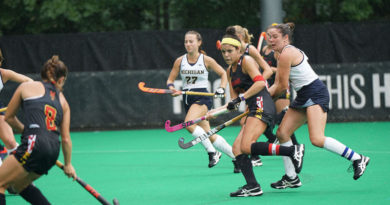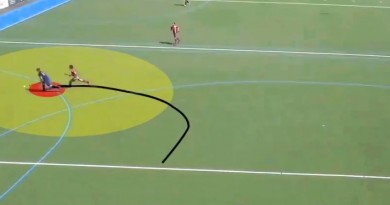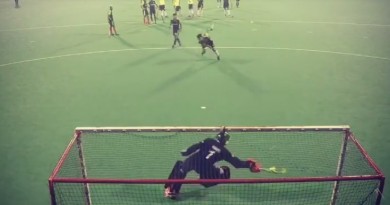The Greatest Coaches in Hockey History
The Top Coaches Who Made Hockey Great: A Look At The Greatest Coaches in Hockey History
Hockey is a beloved sport, with a wide and passionate fan base that spans the globe. From the youth leagues to the pros, the sport has seen its fair share of great coaches who have inspired and guided teams to success.
These coaches have pushed their teams to new heights, and their legacy continues to live on in hockey.
Here, we take a look at the top coaches who have made hockey great over the years, and how they have revolutionized the sport.
Pioneers Who Revolutionized Hockey
Hockey is becoming more and more popular. Fans love to watch matches, attend live matches, and bet on Parimatch. It is impossible to look at hockey and not acknowledge the early pioneers who helped the game to flourish. From the first organized teams to the first international competitions, hockey has seen a lot of changes over the years.
Coaches have become smarter with their approach to the sport, and they have become more adept at understanding the psychology behind it.
There’s no doubt that hockey has changed dramatically over the years, but these coaches have helped to revolutionize the game and set it on a positive course for the future.
Scotty Bowman
Bowman revolutionized coaching with his approach to the sport and his willingness to embrace new ideas. He was the first coach to hire a full-time assistant, and he also brought in sports psychologists and data analysts to improve his team’s performance.
He was a pioneer in the use of video analysis and statistics to improve his team’s performance, and he even brought in a medical consultant to look after his players’ health.
He brought modernity to coaching, and he pioneered a new approach to the sport that has helped to make it the thriving industry we see today. He led many successful teams, including the Montreal Canadiens, whom he coached to a record five Stanley Cup wins.
He also coached the Pittsburgh Penguins, the Buffalo Sabres, the Detroit Red Wings, and the New York Rangers.
Toe Blake
Blake revolutionized coaching with his approach to team building, and he is credited with revolutionizing the way that hockey teams are built.
Blake was the first coach to promote a team-first mentality, and he built his teams around the strong character. He is credited with bringing the first team meal to a hockey locker room, and he also led the first team meeting among his players.
These practices have become standard across the sport, and they have helped to foster team spirit among players. Blake also introduced sports psychology into the hockey locker room, making it part of his coaching process.
He led the Montreal Canadiens to 10 Stanley Cups in 23 seasons, and he also coached the New York Rangers.
Al Arbour
Arbour was a key pioneer in the use of modern technology in hockey, and he is credited with bringing the first computerized statistics to the game.
He was also one of the first hockey coaches to embrace the use of video analysis, and he led the New York Islanders to four Stanley Cup wins in a row.
He also had success with the St. Louis Blues, where he won the Stanley Cup in 1979. Arbour was a dedicated coach who helped to modernize the sport, and he also helped to foster an open environment in hockey.
He is credited with helping to bring the first female hockey coach to the ice, and he also created an environment where players from different backgrounds could thrive. He led the New York Islanders for 16 seasons, where he was named the NHL Coach of the Year twice.
Pat Quinn
Quinn revolutionized coaching with his approach to team management, and he is credited with bringing new life to the Vancouver Canucks.
He was the first coach to bring a player-first approach to managing his team, and he focused on cultivating personal relationships with his players. He was dedicated to helping his players to reach their full potential, and he also helped to bring the first team psychologist to hockey.
He led the Vancouver Canucks to two Stanley Cup wins, and he also coached the Toronto Maple Leafs, the Edmonton Oilers, and the Philadelphia Flyers.
Quinn was a dedicated coach who helped revolutionize the sport, and he is credited with bringing new methods and practices to hockey. He led by example, and he also helped to foster positive relationships between his players and the media.
Mike Babcock
Babcock revolutionized coaching with his approach to mental health in hockey, and he is credited with helping to foster a new approach to team psychology.
He was the first coach to implement a sports psychologist into his team, and he worked with psychologists to help manage his players’ mental health.
He also helped to bring yoga and mindfulness practices to the hockey rink, and he was the first coach to offer yoga classes to his players.
He created an open environment where his players felt comfortable expressing themselves, and he also helped to foster a new approach to mental health in hockey.
He led the Detroit Red Wings to the Stanley Cup in 2008, and he also coached the Anaheim Ducks and the Toronto Maple Leafs.
Joel Quenneville
Quenneville revolutionized coaching with his approach to team culture, and he is credited with bringing a new approach to hockey.
He was the first coach to implement a team diet and nutrition program, and he was also the first coach to hire a dietitian. He helped to foster a new culture in the Chicago Blackhawks locker room, and he is credited with creating a safe space where his players could be themselves.
He helped to introduce a new approach to diet and nutrition in hockey, and he also helped to foster a new approach to team culture.
He led the Chicago Blackhawks to three Stanley Cup wins, and he also coached the Quebec Nordiques, the Toronto Maple Leafs, and the St. Louis Blues.
Conclusion
Coaches are a great addition to the success of a team. They bring with them a lot of influence on the motivation of players and strategy that keeps the players matched according to their strengths.




